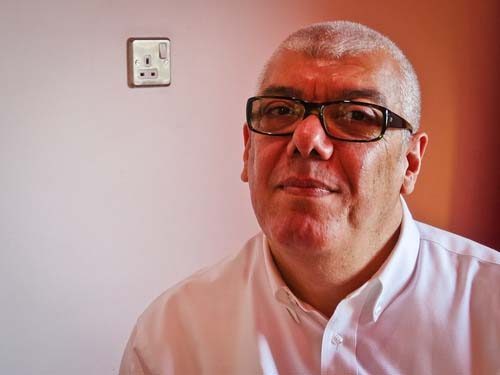
It’s been two years to the day since Mahmoud Bouneb and dozens of other executives at Al Jazeera Children’s Channel (JCC) were inexplicably sacked from their jobs and banned from leaving Qatar.
Now, many of those former employees have returned to their home countries.
But Bouneb, along with his wife, former director of programming Malika Alouane, and former cost controlling manager Haitham Qudaih, remain, facing charges of financial mismanagement and corruption.
Under Qatar’s sponsorship laws, the three cannot legally work here without a no objection certificate that JCC will not grant, causing increasing financial difficulty.
The case against them appears weak. In 2012, the three were cleared of criminal wrongdoing in separate investigations conducted by the Qatar National Audit Bureau and third-party auditors Ernst and Young.
The E&Y report, issued last October, states:
The committee concludes that what was possible to note from the inspection was that there are some administrative misconducts.
However, there is no way to say that the Channel’s employees, whose names appear in the claim, have committed any embezzlement crimes or harmed intentionally the Channel funds.
Despite the findings, and the support of local and international groups, including the Qatar National Commission for Human Rights and Human Rights Watch, the trio continue to languish here.
Not alone
Bouneb, a 58-year-old Tunisian-Canadian, Alouane, a 45-year-old Moroccan, and Qudaih, a 37-year-old Palestinian, are part of a growing number of expats who have found themselves unable to leave Qatar due to conflicts with their employers.
Some, like Arab-American businessman Nasser Beydoun, eventually left Qatar after being cleared by the legal system. Others, like Philippe Bogaert, escaped by boat.
And more, like French-Algerian footballer Zahir Belounis, also pace restlessly in Doha, awaiting clearance to go home. In an interview with Doha News this week, Bouneb said:
“I’m not only angry, I am furious and disgusted because I have been exposed to people who are in the same situation as I am in this country and this is disgraceful for this country.”
He maintains that the JCC case only exists because former colleagues held a personal vendetta against him.
JCC has not publicly commented on the case. Nor has Qatar Foundation, which managed the channel until this summer. JCC, which reaches some 50 million households in the Arab world, is now under the auspices of the Al Jazeera Media Network.
Waiting
Bouneb, Alouane and Qudaih have appeared in court a handful of times this year, but were only formally charged in May – 20 months after being fired and banned from leaving the country. A series of court hearings that were scheduled for June have been postponed until November, and so now the trio is waiting.
The delay in their case is proving costly. Under Qatar’s sponsorship (kafala) system, employees cannot switch jobs or leave the country without their employer’s permission.
Unable to exit Qatar or work legally here, the three former executives are finding it increasingly harder to support themselves.
This month, Bouneb said he cashed in his pension in Switzerland, where he was based for 17 years, to cover some expenses. But the situation appears most dire for Qudaih, who has a wife, three children (ages 1, 7 and 8) and his parents to support in Doha.
Speaking to Doha News, Qudaih, who was born and raised here, said he is on the brink of a “family disaster:”
“I don’t know what to say. No one believes our story. People are not willing to help as long as the court is still examining the case and I am running out of ways to keep my family surviving. The stress and agony are unbearable and no one seems to care.
The school will start penalizing us if we don’t pay tuition by the end of this month, and the landlord wants the rent and the lawyer his fees. Maybe it’s unfair for them to wait too, but I’m tired and don’t know what to do. I’ve depleted my savings and at 37 I find myself and my family having to start from scratch.”
Meanwhile, international criticism of Qatar’s kafala system is growing. Most recently, it came under fire in a Guardian report published on Wednesday, detailing labor abuses against Nepali construction workers here in the run-up to the 2022 World Cup.
To raise awareness of the JCC case, a Tunisian-based group called the Support Committee for Mahmoud Bouneb released a statement yesterday, condemning the trio’s travel ban and treatment:
The Qatari Authorities have turned a blind eye to this out-loud injustice and the violations of their basic human and civil rights putting them under further austere psychological and financial pressure…
We appeal to the highest authority in the State of Qatar to reverse the course of the injustice brought upon Bouneb, allow him his dues and compensations for the serious damage incurred to him and his family. The Committee holds both at Al Jazeera Children’s Channel and Qatar Foundation liable and fully responsible for the abuse and harm they instigated on Bouneb, his colleagues and their families. In a country of law, the persons behind such aberrant violations are held strictly accountable.
The next hearing in the trio’s case is Nov. 5. Even if they are cleared, Alouane, who said that the three of them are collectively owed some $1 million in end-of-service pay, is not sure justice will ever be served.
“Our civil rights were violated on Sept. 27, 2011 – it will remain an everlasting stain,” she said.
Thoughts?
Credit: Photo by Shabina S. Khatri







